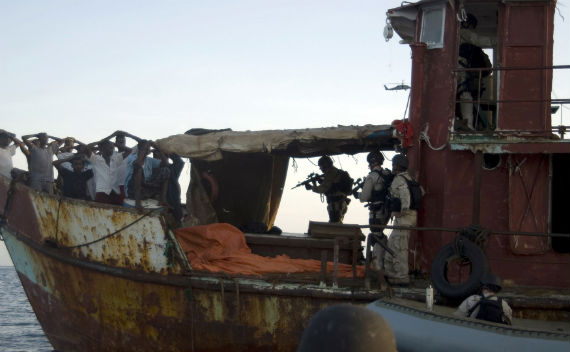Fighting Somalia Piracy Onshore and Off
More on:

This is a guest post from Michael Baker, the U.S. defense and naval attaché (designate) to Madagascar, and a former CFR fellow. The views expressed are his own.
The tragic deaths of Jean and Scott Adams, Phyllis Macay, and Robert Riggle at the hands of Somali pirates are sure to spark more public outrage against pirates and hand wringing about the efficacy of naval task forces fighting piracy off Somalia. But ending Somali piracy is not a purely naval operation. It involves a host of efforts ashore: international law enforcement, criminal investigation, judicial procedures, anticorruption actions, and economic development.
Somali piracy has evolved over the years from a mom-and-pop style endeavor to an international criminal organization. The real pirates are fat-cat ringleaders coordinating operations out of Nairobi and other major cities in East Africa or the Middle East. They use "intelligence agents" operating from local ports to pass information on targets and provide "mother ships" for launching operations.
Governmental complicity and/or apathy is the main reason Puntland has become a center for recruiting the pirates who actually go to sea, whereas neighboring Somaliland produces few, if any, pirates thanks to strong governance.
While Somali pirates currently hold more than 30 ships and more than 700 hostages, international navies have nearly eliminated piracy in the Red Sea and the Gulf of Aden--restricted bodies of water. The pirates have been driven to the greater Indian Ocean, making it more difficult and expensive for them to operate but simultaneously making it more difficult for naval forces to effectively patrol this vast body of water.
If we are serious about ending Somali piracy, we have to show mettle for rounding up the ringleaders, fighting corruption in Puntland, and working on development initiatives to establish legitimate economies in Somalia--all while also conducting cooperative maritime patrols near the Horn of Africa.
For more on African maritime issues please see: Smarter Measures, Pirates for Commerce, Building Partnerships to Defeat Piracy, & Toward an African Maritime Economy.
More on:
 Online Store
Online Store